Salim Khan
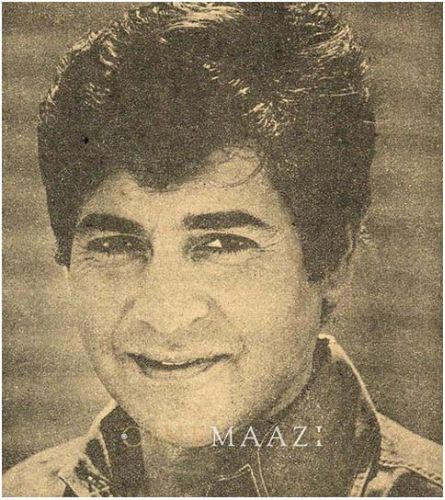
Subscribe to read full article
This section is for paid subscribers only. Our subscription is only $37/- for one full year.
You get unlimited access to all paid section and features on the website with this subscription.
Not ready for a full subscription?
You can access this article for $2 , and have it saved to your account for one year.
- Real Name: Salim Abdul Rashid Khan
- Born: 24 November, 1935 (Balaghat, Indore, British India)
- Primary Cinema: Hindi
- Parents: Abdul Rashid Khan
- Spouse: Helen , Salma Khan
- Children: Salman Khan , Arbaz Khan , Sohail Khan , Alvira, Arpita
One of the finest screenwriters of Hindi films with blockbusters such as Sholay (1975), Zanjeer (1973), Deewaar (1975), Don (1978), and Kranti (1981) to his credit, penned in collaboration with Javed Akhtar, Salim Khan is also an actor, and film producer. He started off playing supporting roles in films such as Baraat (1960), Ramu Dada (1961), Professor (1962), Kabli Khan (1963), Bachpan (1963), Dara Singh: Ironman (1964), Aandhi Aur Toofan (1964), Raaka (1965), Sarhadi Lutera (1966), Teesri Manzil (1966), Chhaila Babu (1967), Lahu Pukarega (1968), and Wafadar (1977). His real success came as one half of the formidable Salim-Javed scriptwriter duo, which is credited with transforming Hindi cinema in the 1970s, rewriting the formula to create a new format, and birthing genres such as the masala film and the dacoit-Western. He, along with Akhtar, is recognized as perhaps the most successful scriptwriter duo of Hindi cinema, gaining never-seen-before star status. Khan and Akhtar are also recognized for crafting the Angry Young Man avatar powered onscreen by Amitabh Bachchan. Of the 24 films penned by Salim and Javed, 20 were hits. Winning six Filmfare Awards for the films Shakti (1982), Deewaar (1975), and Zanjeer (1973) co-written by Akhtar, after the partnership ended, Salim Khan also independently penned films such as Angaaray (1986), Naam (1986), Kabzaa (1988), Jurm (1990), Patthar Ke Phool (1991), Auzaar (1997) and Pyaar Kiya To Darna Kya (1998). Khan declined to receive the Padma Shri award in 2015 saying it didn’t match his status and body of work.
He was born Salim Abdul Rashid Khan on 24 November 1935, in Balaghat in the princely state of Indore, presently in Madhya Pradesh. Hailing from an affluent family, he was the youngest child of Abdul Rashid Khan, who had joined the Indian Imperial Police and rose to become DIG-Indore. Losing both his parents by the time he was 14, he appeared for his matriculation examination in March 1950. Completing his BA from Holkar College, Indore, he excelled at sports such as cricket, enrolled for his Master’s degree, and also went on to become a trained pilot.
Fascinated by films he received an offer from film director K Amarnath, who was impressed by his good looks. Khan accepted the supporting role in Amarnath’s film Baraat (1960) and moved to Bombay. Debuting under the name Prince Salim, success however was not easy to come by. Baraat did not fare well at the box office, and he was typecast in minor roles in films such as Teesri Manzil (1966), Sarhaadi Lootera (1966), and Diwaana (1967). He also played the lead role in Nazar's directorial Bachpan (1963). He later admitted that he eventually understood that he “was not cut out to be an actor because I lacked the art of projection. But by then it was too late — how could I have gone back to Indore?” With his acting career going nowhere, in the latter part of the 1960s, he turned his attention to script-writing. Working with Abrar Alvi as a writing assistant, he went on to pen the script of Do Bhai (1969), an action-drama, produced and directed by Brij Sadanah, starring Ashok Kumar, Mala Sinha, and Jeetendra.
Khan had met Javed Akhtar while they worked on the film Sarhadi Lootera (1966). The film was to be Khan’s last acting appearance, while Akhtar was assigned the writing of dialogue for the film by its director, S M Sagar. The two struck up a friendship, which deepened by virtue of the fact that the men they were employed by happened to be neighbors. Abrar Alvi, whom Salim Khan worked for as an assistant writer, lived next door to Kaifi Azmi, whom Javed Akhtar worked for also as an assistant writer. Thus, Khan and Akhtar would see a lot of each other and went on to form a script-writing team, by the name Salim-Javed. It was Salim who would create concepts for stories and plots, while Javed would develop the dialogues and occasionally also pen the lyrics for those films.
Salim and Javed garnered their first break as script-writers together with Rajesh Khanna’s Haathi Mere Saathi (1971). The drama film starring Rajesh Khanna and Tanuja became a hit. Success had arrived. Salim along with Javed went on to be hired as resident screenwriters for Sippy Films. The duo went on to write bigger success with Andaz, directed by Ramesh Sippy and starring Shammi Kapoor, Hema Malini, Rajesh Khanna, and Simi Garewal. Their other early films include Adhikar (1971), starring Ashok Kumar, Nanda, and Deb Mukherjee in the main roles, and the comedy-drama Seeta Aur Geeta (1972) directed by Ramesh Sippy, starring Hema Malini, Dharmendra, and Sanjeev Kumar in leading roles.
The following year, Salim-Javed penned the hit Yaadon Ki Baaraat (1973), directed by Nasir Hussain. It featured an ensemble cast, comprising Dharmendra, Vijay Arora, Tariq, Zeenat Aman, Neetu Singh, and Ajit. An influential film in the history of Indian cinema, it is regarded as the first masala film, combining elements of the action, drama, romance, musical, crime, and thriller genres. This blend went on to define the most popular genre of Hindi cinema.
The year also saw the release of Salim-Javed’s action thriller Zanjeer (1973), directed and produced by Prakash Mehra, and starring Amitabh Bachchan, Jaya Bachchan, Pran, Ajit Khan, and Bindu. The film is credited with starting a new wave in Hindi cinema, a reaction to the existing corruption and low economic growth of the time, and the resultant frustration of the common man against the system. The scriptwriter duo channeled the anger of the masses into the new hero figure, who possessed both the courage to fight against societal ills, as well as a strong moral compass. With this film, which was a blockbuster in India as well as overseas namely in the Soviet Union, Amitabh Bachchan saw the dawn of his stardom. Salim-Javed would go on to pen many of their subsequent scripts such as Deewar (1975) and Sholay (1975) with Bachchan in mind, establishing him as a superstar.
The Salim-Javed thriller Deewaar (1975) directed by Yash Chopra, and starring Shashi Kapoor, Amitabh Bachchan, Neetu Singh, Nirupa Roy, and Parveen Babi, told the story of a pair of impoverished brothers who, after their family is betrayed by the misplaced idealism of their father, struggle to survive in the slums of Bombay, and eventually find themselves on opposing sides of the law. A critical and commercial success, the film is considered a cinematic masterpiece. Its anti-establishment themes and Amitabh Bachchan’s criminal anti-hero vigilante character cemented his Angry Young Man image.
Deewaar also established beyond any doubt the powerful success of Salim and Javed. As they went on to write more blockbusters, they also rewrote the status of film writers in the star-crazy film industry. Earning as much as leading actors of the time, they enjoyed a towering standing in Hindi films, never seen before.
The duo's biggest was yet to come—Sholay (1975). The action-adventure film directed by Ramesh Sippy, and produced by his father G P Sippy, is considered a classic and one of the best Indian films of all time. Described as a Curry Western, combining the conventions of Indian dacoit films with that of Spaghetti Westerns along with elements of Samurai cinema, Salim-Javed also created a defining example of the masala film, mixing several genres in one work. The film combined themes of violence, feudal ethos, and male bonding, among others. Praising the film, the New York Times said that Sholay “revolutionized Hindi filmmaking and brought true professionalism to Indian scriptwriting.”
Salim collaborated with Javed to write the hits Don (1978), Trishul (1978), Dostana (1980), Kranti (1981), Zamana (1985), and Mr. India (1987). They went on to work together in 24 films including two Kannada films – Premada Kanike (1976) and Raja Nanna Raja (1976). Penning 20 hits out of the 24 films they collaborated on, Salim and Javed parted ways in 1982. Scripts they had penned went on to be made into films after their split, such as the critically acclaimed hit Zamana (1985) and the highly successful Shekhar Kapur directorial Mr. India (1987).
Salim-Javed changed the way scriptwriters were perceived and treated within the Hindi film industry. Powered by the might of their success, their names would be featured in film credits—something that was not the norm at the time. They also commanded a fee that was immensely higher than the remuneration generally drawn by scriptwriters at the time. In another break from tradition, they were also involved in the different stages of the process of writing, including screenplay and dialogues.
Post his split with Akhtar, Salim penned the script and dialogue for 13 films from 1983 to 1996. These include hits like Angaaray (1986), Naam (1986), Kabzaa (1988), and Jurm (1990). He also penned Patthar Ke Phool (1991), starring his son Salman Khan, as well as Auzaar (1997) and Pyaar Kiya To Darna Kya (1998), which were produced by his youngest son Sohail Khan and starred Salman.
Salim and Javed unofficially collaborated one last time for the 2003 hit film, Baghban. They evidently independently wrote a speech for Amitabh Bachchan and Salman Khan in the film. However, neither was credited for it.
On the personal front, Salim Khan married Salma Khan (nee Sushila Charak), in 1964. The couple has four children—Salman who is a superstar of Hindi films, actor-producers Arbaaz and Sohail, and a daughter, Alvira. In 1981, Khan married actress Helen Richardson. The family adopted a girl named Arpita. Salim Khan’s family is one of the prominent Hindi film clans.
-
Filmography (6)
SortRole
-
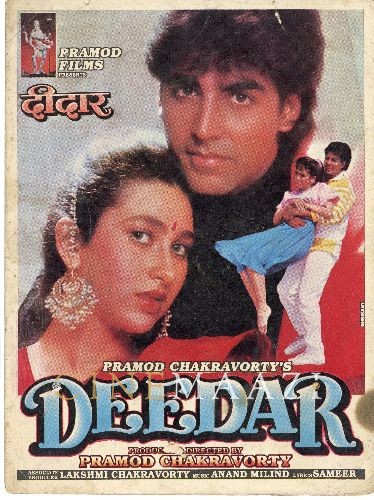
Deedar 1992
-
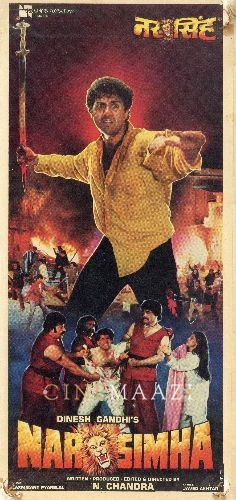
Narsimha 1991
-
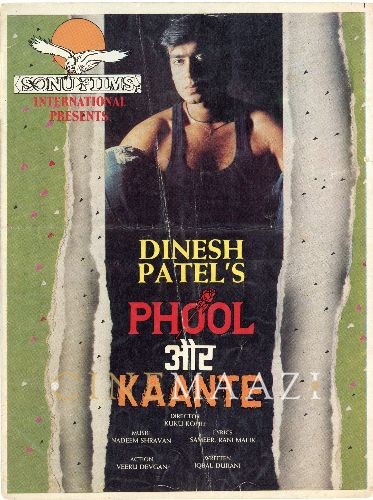
Phool Aur Kaante 1991
-

Dilsey Miley Dil 1978
-

Kabli Khan 1963
-
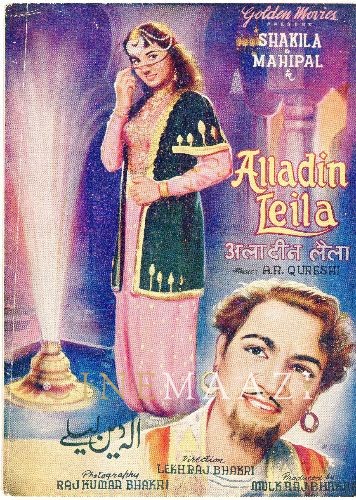
Alladin Leila 1957
-
-
Awards (4)

Filmfare Awards, 1976
Best Screenplay: Deewaar (1975)
Best Story: Deewaar (1975)
Best Dialogue: Deewaar (1975)
Filmfare Awards, 1983
Best Screenplay: Shakti (1982)









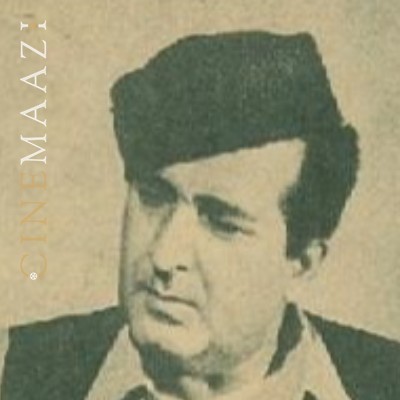

.jpg)



